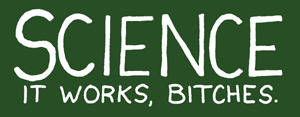I feel safe in declaring that cancer is bad; in fact, I feel safe in declaring that cancer is really bad. So then, a vaccine that targets 90% of cancers would be really good, right? (That's up for you to decide. There's no right answer, except for, "yes.")
Well, scientists are creating just that. It's called ImMucin (and also proves that scientists would be terrible marketers), and its existence has been made public for a little while now (in fact, I think I did a news post about the vaccine when it was first announced). However, there weren't any trials with human test subjects to determine its effectiveness. Until now, that is.
While I obviously don't need to explain why saving lives is good, there's also an economic benefit. After all, seeing how costly health care costs can be, a vaccine that may mitigate many of them would certainly be a boon.
Keep your fingers crossed; if everything goes well, we might just see this in 2018. In the meantime, we can all just quote the wise words of Randall Munroe...

Well, scientists are creating just that. It's called ImMucin (and also proves that scientists would be terrible marketers), and its existence has been made public for a little while now (in fact, I think I did a news post about the vaccine when it was first announced). However, there weren't any trials with human test subjects to determine its effectiveness. Until now, that is.
Source: Medical DailyImMucin, a vaccine that targets a molecule present in 90 percent of all cancers, has been tested on humans for the first time, according to researchers who found that all the blood cancer patients tested in the trial had greater immunity to the disease after receiving the drug.
Researchers from the drug maker Vaxil Biotheraputics and Tel Aviv University said that seven of the patients who have finished treatment all had significantly greater immunity against cancer cells compared to before they were given the vaccine, and three of the patients in the study are now free of the condition. Results have yet to be formally published, but if the findings are confirmed in future trials then the vaccine could be on the market in six years.
The clinical trial was conducted at the Hadassah Medical Centre in Jerusalem and consisted of ten patients with multiple myeloma, a type of blood cancer that affects plasma cells in bone marrow, have now received the vaccine.
While I obviously don't need to explain why saving lives is good, there's also an economic benefit. After all, seeing how costly health care costs can be, a vaccine that may mitigate many of them would certainly be a boon.
Keep your fingers crossed; if everything goes well, we might just see this in 2018. In the meantime, we can all just quote the wise words of Randall Munroe...




